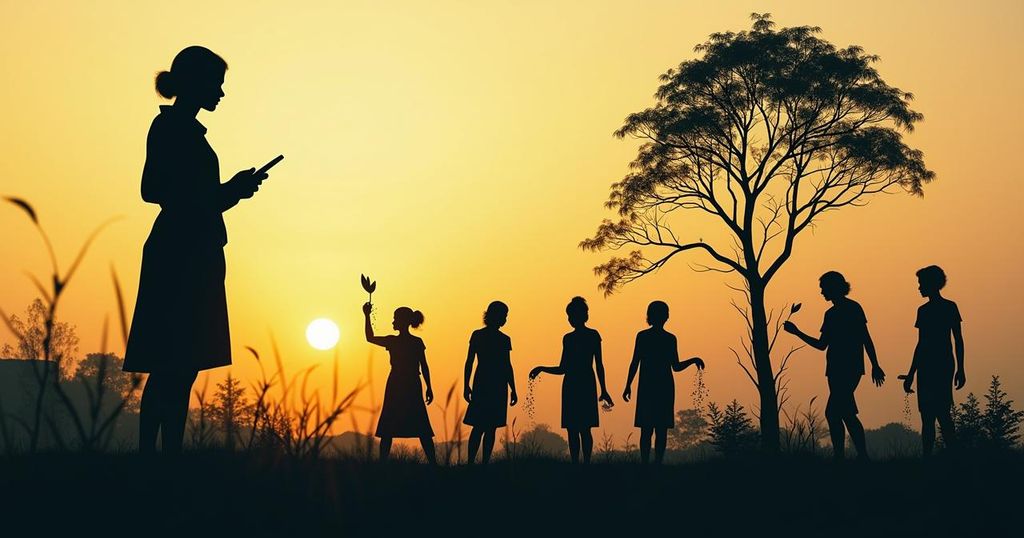Women as the Frontline Responders to Climate Change in Bangladesh: Insights from Rizwana Hasan
At the Annual Community of Practice Network Convention 2024, Environment Adviser Syeda Rizwana Hasan addressed the significant challenges women, especially mothers, face due to climate change in Bangladesh. She highlighted issues such as clean water scarcity impacting women’s health and emphasized the need for international support for affected nations. The event recognized exemplary women-led initiatives for climate adaptation.
In a recent address at the “Annual Community of Practice Network Convention 2024” in Dhaka, Environment Adviser Syeda Rizwana Hasan articulated the poignant struggles faced by women, particularly mothers, amid the challenges of climate change and natural disasters. She emphasized that women’s roles as primary caregivers make them particularly vulnerable during such events, stating, “Women, as primary caregivers, are responsible for putting food on the table for their children daily. This is why, during any disaster or climate change event, challenges faced by the women are the greatest.” Rizwana highlighted the harrowing specificities of women’s experiences in regions like Khulna, where the scarcity of clean water has had severe implications on reproductive health—forcing many to resort to birth control pills to manage their menstrual cycles. Furthermore, she noted, “During pregnancy, many women suffer from high blood pressure due to the saline water. Despite an abundance of water, there is a critical shortage of safe drinking water.” The convention, organized by the Manusher Jonno Foundation and supported by UN Women, convened experts and activists dedicated to fostering climate adaptation and promoting gender equality. Rizwana also stressed the importance of recognizing the consequences of climate change, urging a shift in public perception: “People often complain about heatwaves, floods, and extreme weather, but there is a reluctance to acknowledge these as consequences of climate change.” Regarding international cooperation, she pointed out that discussions are impending among nations to bolster support for countries grappling with climate challenges, adding, “Developed countries burn more fossil fuels, and yet they have failed to deliver the promised funds to the affected nations through the Loss and Damage Fund. Developed nations talk big but fail to provide the necessary financial support. However, Sweden has been an exception.” At the conclusion of the event, Rizwana extended recognition to five exemplary women-led initiatives addressing climate change adaptation. The ceremony was presided over by Shaheen Anam, Executive Director of the Manusher Jonno Foundation.
Climate change is increasingly recognized as a global crisis with disproportionately negative impacts on specific demographics, particularly women. In countries like Bangladesh, where natural disasters frequently occur, women often face heightened challenges due to their roles as primary caregivers and providers for their families. Amidst climate-related adversities, issues such as water scarcity significantly affect women’s health and wellbeing, amplifying the need for targeted interventions and support systems. The role of international cooperation is of paramount importance in addressing these inequities, as developed countries are called upon to fulfill their funding commitments to support vulnerable nations.
Syeda Rizwana Hasan’s remarks at the 2024 Community of Practice Network Convention underscored the urgent need for recognition of the unique challenges that women endure in the face of climate change. Her call for regional cooperation and accountability from developed nations highlights the pressing necessity for comprehensive global action and support mechanisms to empower women and equip them to tackle the ramifications of climate change. Recognizing and supporting women-led initiatives is pivotal in fostering resilience and adaptation in affected communities.
Original Source: asianews.network




Post Comment